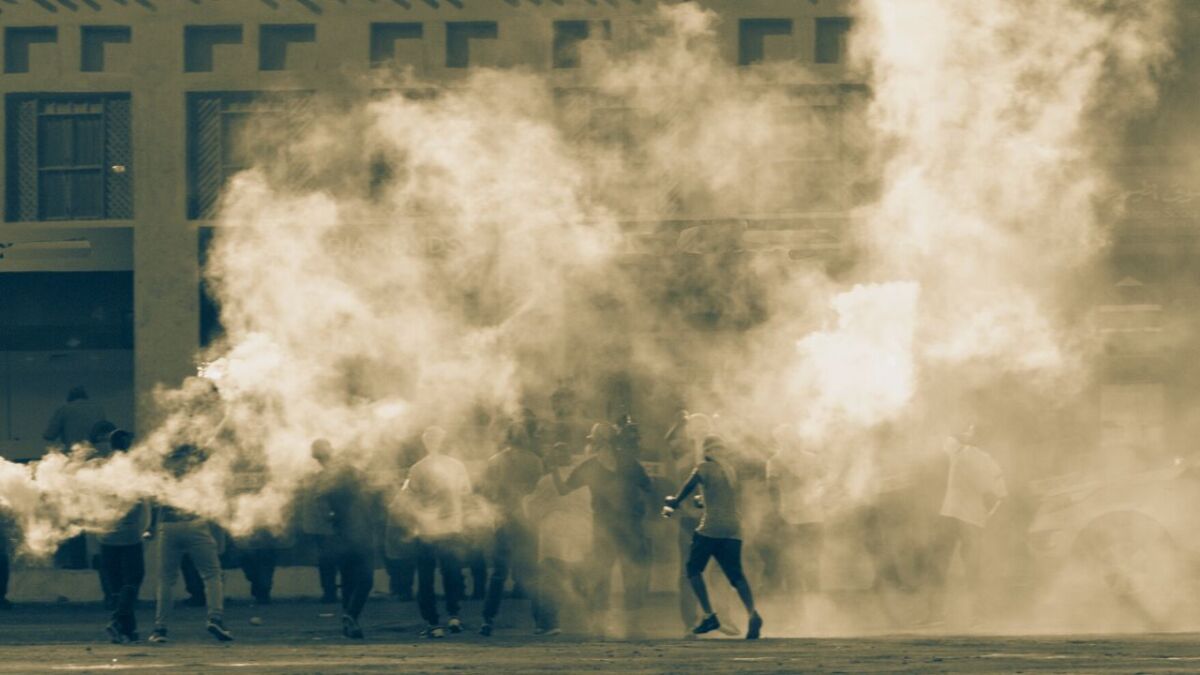
The 8 worst places you shouldn't be when a disaster strikes
👉 The key facts from this guide
- Avoid capital cities or places of political significance, as they can become hotspots during times of crisis.
- Well-known trade and travel routes can become conflict zones, stay away from them.
- Cities with high population density can quickly become scenes of violence and chaos.
- Strategically important targets such as military facilities can be targets of attacks, avoid them.
- Places experiencing food shortages can become centers of conflict and violence.
- Places without secure water supply are risky, as water is vital for survival.
- Avoid places with extreme climates, as they can make survival difficult.
- Contested areas, whether through political unrest or organized crime, are dangerous.
What do you think is a realistic disaster scenario that could occur in your immediate vicinity?
Get away from zombie apocalypses, alien invasions, or lethal asteroid impacts with the power of numerous atomic bombs - and instead pay attention to more likely scenarios.
So, which scenarios do you consider realistic in our latitudes?
Probably war, civil war, or the collapse of the current system?
If so, you're right.
Disaster researchers believe that the danger of civil wars and civil unrest is also increasing in Germany and Central Europe.
The question is: which places are particularly dangerous? Let's take a look at them!
In crises, there are no guarantees
If modern civilization, as we know it, collapses within a short time, law and order will probably come to an end.
The reasons are diverse, such as a gas outage, flooding, extreme drought, nuclear reactor accidents, a blackout, or even war.
Politically extreme movements could then develop into militant organizations that see each other as mortal enemies and do everything they can to maintain or expand their own power structure.
Of course, you could argue now that it would be more sensible if someone gave you a list of places where you are safe. However, such a list would have a big problem that cannot be avoided: it can never be complete or realistic.
In such a scenario, no one can name a place where you are really safe for a longer period of time.

Power relations are constantly shifting, conflicts can break out anywhere and places that were safe just a moment ago can be destroyed. You realize that it is simply not possible to name places that are permanently safe for you.
Therefore, it makes more sense to name places that are basically "less bad" than others. This way, you can survive such a turbulent time as unscathed as possible.
However, keep in mind that even this list cannot guarantee you 100% safety at the mentioned places. As in all exceptional situations and disaster scenarios, you will have to assess for yourself on site how safe or risky the situation is.
Nevertheless, this article will provide you with valuable information that will help you to secure your survival and also protect your loved ones from harm.
Now you will find out where you should not stay for a second in case of an emergency.
1. Capitals or places of political significance
Imagine a crisis scenario that includes a societal collapse, for example.
What do you think the state of the local government is? Whether it has already been completely dissolved or still exists in fragments, there will always be someone holding onto their position of power.
If there are rebellions, curfews or anarchic states, capital cities or places of political significance will receive special attention - both from the government or what remains of it, and from their opponents. In the worst case scenario, you could find yourself caught in the crossfire.
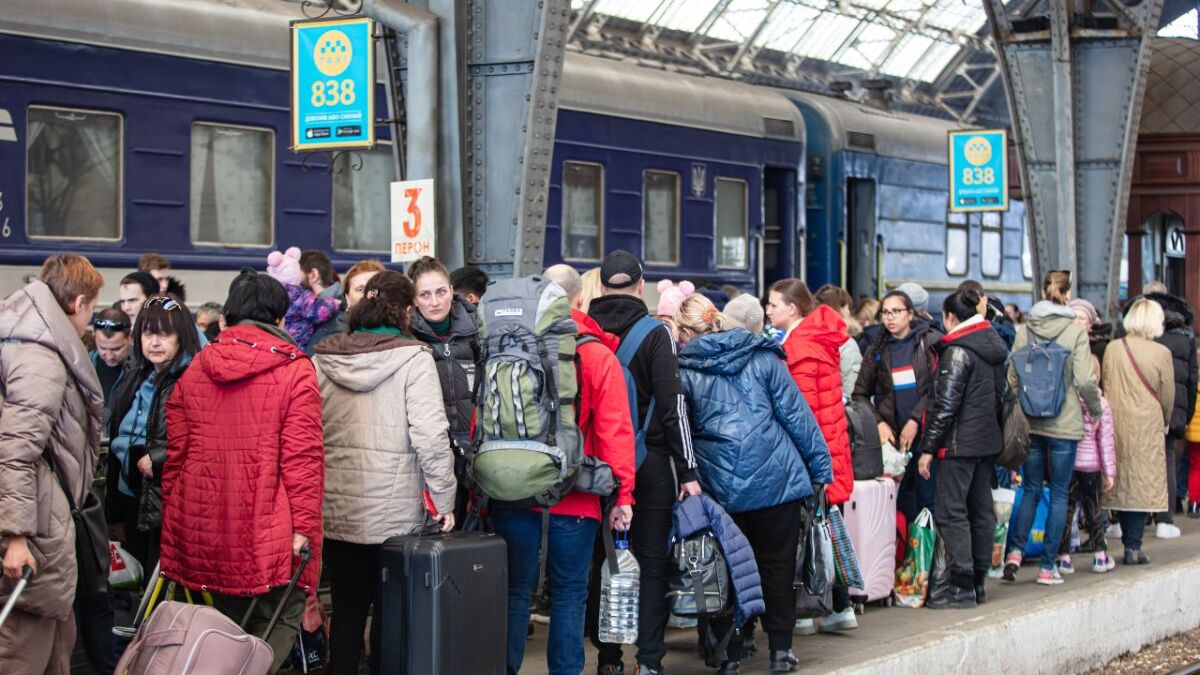
If fighting breaks out in this chaos, hardly anyone can really say who is friend or foe. Increasing paranoia on both sides can lead to false assumptions that have serious consequences. You may quickly be mistaken for being on the opposing side, even though you have absolutely nothing to do with the local conflicts.
Furthermore, there will be a lot of people who specifically seek out such places, as they expect to find supplies, information or just hope there. In the current chaotic situation, these crowds of people also pose conflicts.
In plain language: Stay away from capital cities or places of political significance and leave them as soon as possible in case of emergency.
2. On known trade and travel routes
Just because society has collapsed does not mean that people will stop moving.
Of course, various groups will continue to look for ways to achieve their goals, conduct trade, or carry out criminal intentions.
Humans seek order and follow what is familiar to them. This principle also applies to trade and travel routes. If certain goods have to be transported from one major city to another, it is very likely that the same familiar route will be chosen for it.
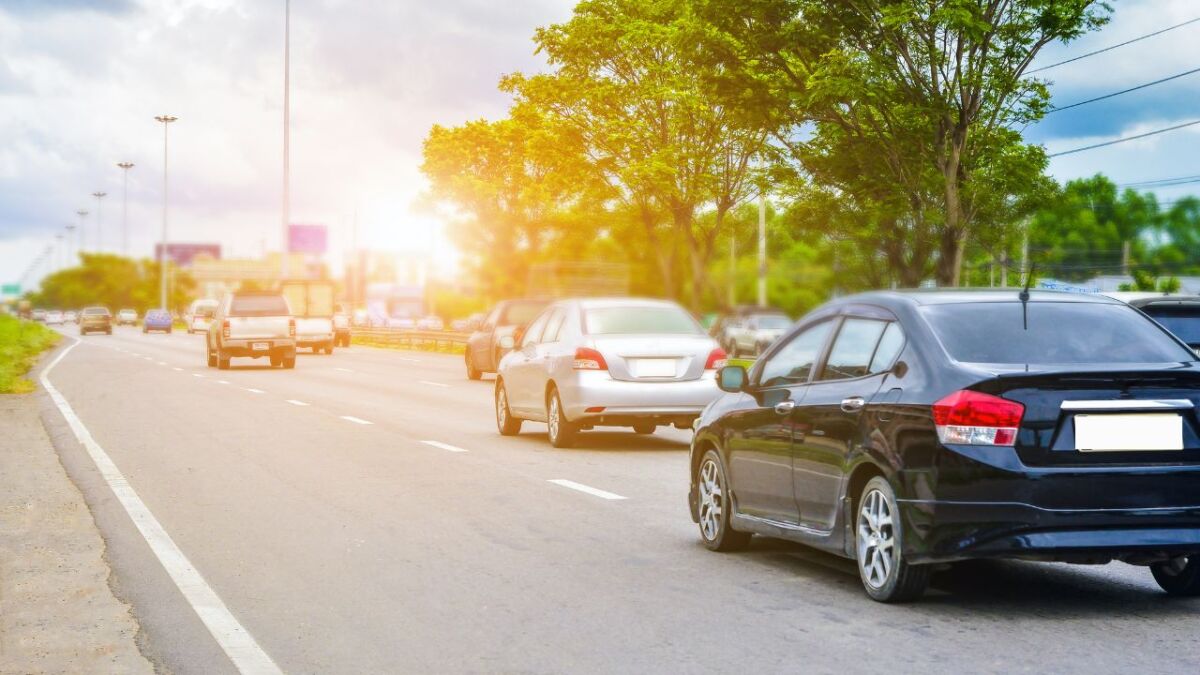
If rails and road networks are still usable, they are gladly used for this purpose. If you are wondering what trade routes have to do with survival, think again about what it could mean for you to be on such a trade route.
I'm not talking about using this route for trading. I'm talking about avoiding staying on such a route in the long term, let alone living there.
Otherwise, you will have to deal with new, uncertain contacts every day who will inevitably cross your path - simply because you have decided to set up camp there.
Sure, these will often actually only be simple traders who want to get rid of their goods. On other days, however, they are smuggling criminals or plunderers. The risk to you and your resources is simply too high. You should decide independently and thoughtfully with whom you come into contact and with whom not.
Therefore, if you are not dependent on the remaining trade or have to use these routes for other reasons, if you have no other choice, then avoid them as much as possible, especially in the long term.
3. Large cities with high population density
You will have already inferred from the previous points that one of the most important survival strategies is to avoid unnecessary contacts.
However, if you find yourself in a big city that already has a huge population density, it becomes difficult.
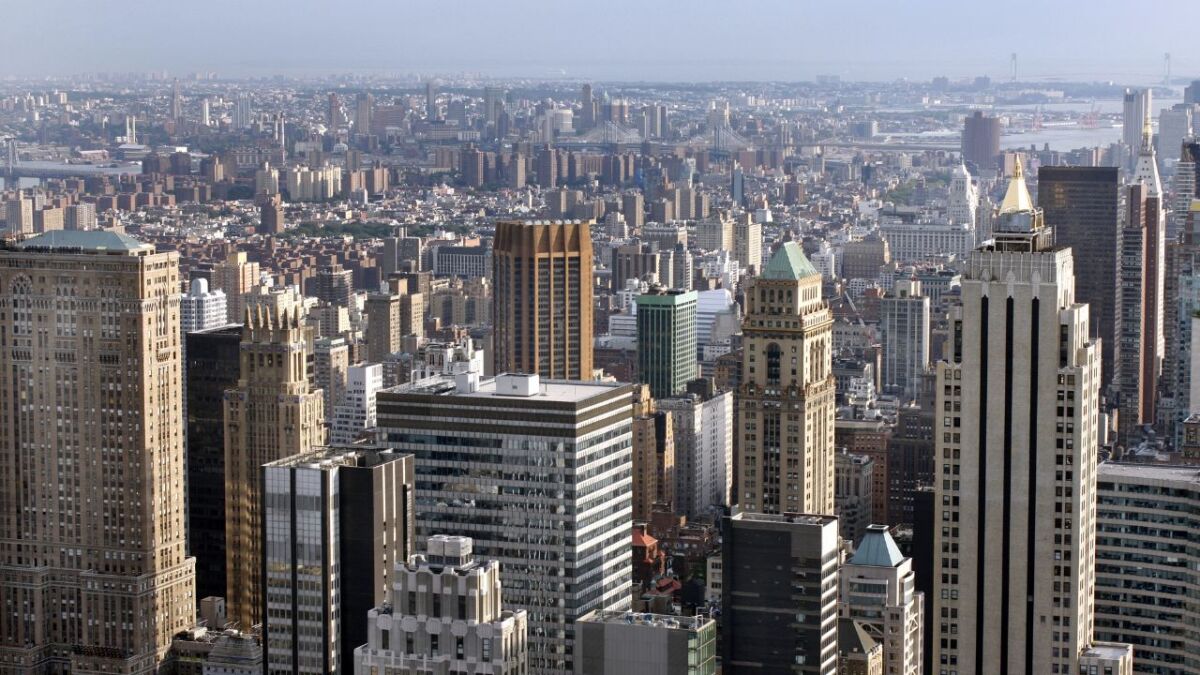
Furthermore, you can assume that the streets will be blocked at a minimum, necessary help such as ambulances, police or fire departments will not even reach you when you need them. This is mainly true if their organization is hardly intact or non-existent.
If you combine a little, you will notice another problem: escalating violence. If the so-called "helping organs" no longer function, panic will quickly spread among the people. Panic can quickly become contagious, which is even more dangerous in a large crowd (read here how you deal with panic in an emergency).
When panic breaks out, the actions of the local population become irrational and the threshold for violence drops enormously. The more irrational people are around you, the more uncomfortable it will be for you over time and as the escalation level increases.
Therefore, it is better to stay in smaller, less populated areas. It is easier to get an overview and assess the people living there better. Don't forget: unnecessary contacts should be avoided - especially in such times.
Also read
The first 13 things a new prepper should take care of – Will you be ready and prepared when a disaster strikes? Here are the first 13 important things a new prepper should take care of.
4. Near important strategic targets
As you can imagine, some rogue states take advantage of the civil instability of an old competitor for their benefit. Accordingly, it is also not unlikely that a war declaration will occur in the midst of an uprising. At this point, there is an internal and external threat factor that must be considered.
You should therefore avoid barracks, ammunition depots, training grounds and other targets of strategic importance. These can become targets of attacks at any time.
But even if there is no open declaration of war, you should not take any risks. The government is well aware that an increased threat situation exists during the unstable state. Military areas will therefore be even more closely guarded and protected than during times of peace.
The risk of misunderstandings is enormous and can cost you dearly. Therefore, stay away from such places as best you can!
This also applies if you are seized by the wrong spirit of adventure. Believe me, now is not the right time to "take the chance" and take a closer look at a military base or the like.
5 Places Where Food Shortages Exist
Although this is actually self-evident, you shall still receive a plausible explanation.
As you know, Germany is a thriving import and export nation. So not all of the food available to you in the supermarket is grown or produced here.
In everyday life, this means a matter of course luxury as well as the supply of all the food we could need.
On the other hand, this also means that in such a scenario we could quickly be caught with our pants down.
If our system breaks down, food supplies may not always be guaranteed.
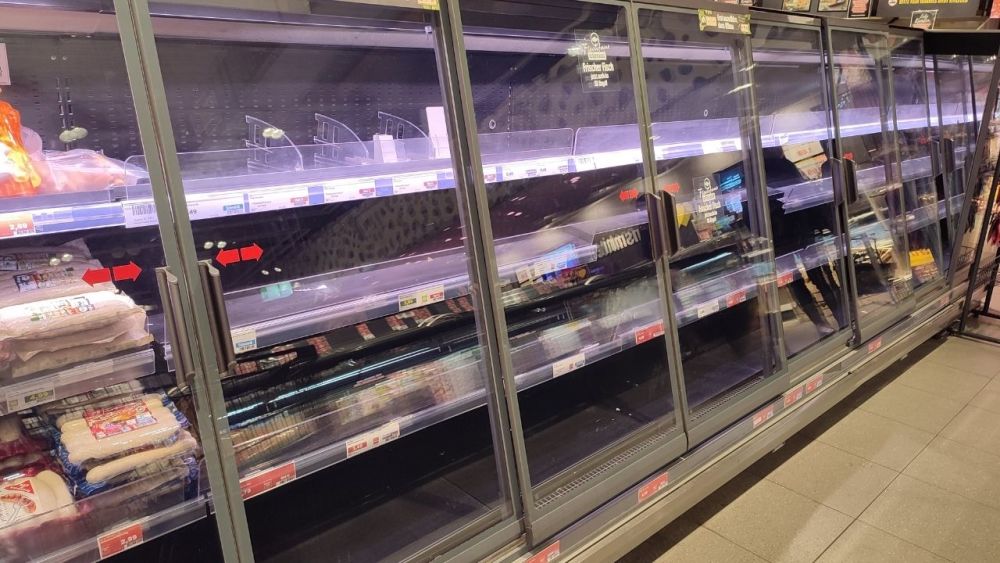
Here, too, large cities are in focus again. These usually have numerous supermarkets, but they will be looted faster than you can imagine.
At the latest then, the struggle for food will intensify and you will inevitably be involved in it, whether you like it or not.
So don't stay in areas where the fight for food is foreseeable. It's better to be in a village where food can be grown (as self-sufficiency) than in the city where communal famine is inevitable.
Also read
These foods are extremely long-lasting and you should have them in your pantry - With prepping you have to be prepared: Get these ever-lasting foods. This will prepare you properly for a crisis situation.
6. Places where water supply is not guaranteed
What applies to food also applies, of course, to water supply. It is even more essential than food.
Although it is reassuring to know that we generally have a functioning water supply, things can always go wrong. Don't forget, the current system has just collapsed and hardly anything is working anymore.
So you should be able to organize water yourself, whether from natural sources, wells, lakes, streams, or rivers.
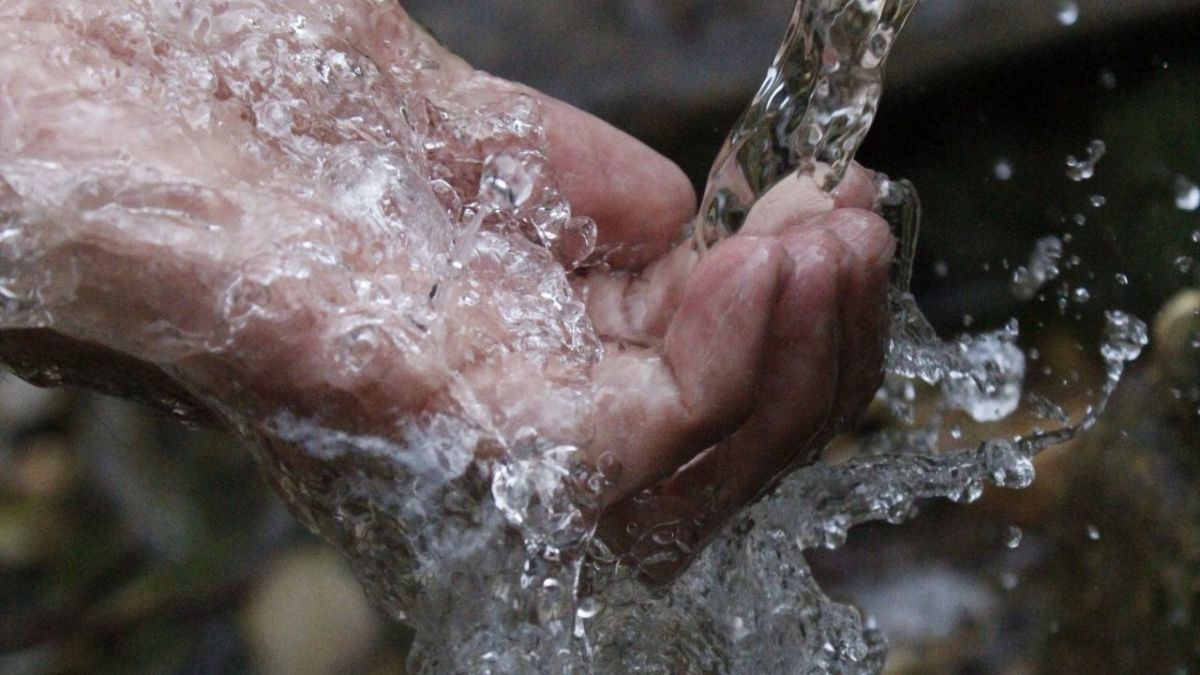
In some areas, as you have probably noticed several times, this is a rather difficult undertaking. Especially cities and other urban areas are usually completely dependent on the internal water network.
Especially in the height of summer, you should keep an eye on which areas are particularly affected by dry periods and droughts. Stay attentive and aware of your surroundings and the environment to always make the best decisions.
Also read
Calculate water emergency reserves per person - Prepper calculator for crisis preparedness - Water is essential to life and more important than food. Calculate with our Prepper calculator for crisis preparedness your needed water emergency reserves per person.
7. Climate-extreme areas
This point mainly refers to areas that suffer from particularly harsh winters or summers, making it particularly difficult for you to survive in them.
In today's world, you will hardly have any problems heating your own four walls when it gets cold or turning on the air conditioning when it gets too hot in midsummer.

But don't forget that resources are also required for heating or cooling, resources that you only have access to because a functioning system enables it.
If this system breaks down, it will be pretty difficult to ensure your access to these important resources. In plain language, that means no heating or air conditioning!
I'll show you how to deal without heating in my guide "9 ways to stay warm without electricity and heating".
At first glance, this may sound not so bad, but in this scenario, it is anything but harmless. Imagine a bitterly cold winter descending upon you while you are still on your way to the next safe place (perhaps even in your car and you get stuck in the snow) and you have no way to keep warm.
Sure, you can make a fire to keep warm, but in your situation, that may not be so simple. You need firewood as well as a suitable place for your campfire, ideally where you won't attract too much attention.
An extremely harsh winter adds to your difficulties and can be avoided if you seek milder climes in time.
The same is, of course, true for unbelievably hot summers. If you are unable to move a decent distance during the day due to scorching heat, you are unlikely to make much progress.
Don't forget that you are not the only one having these difficulties. If you decide to venture out at night, you will likely encounter others with the same intentions.
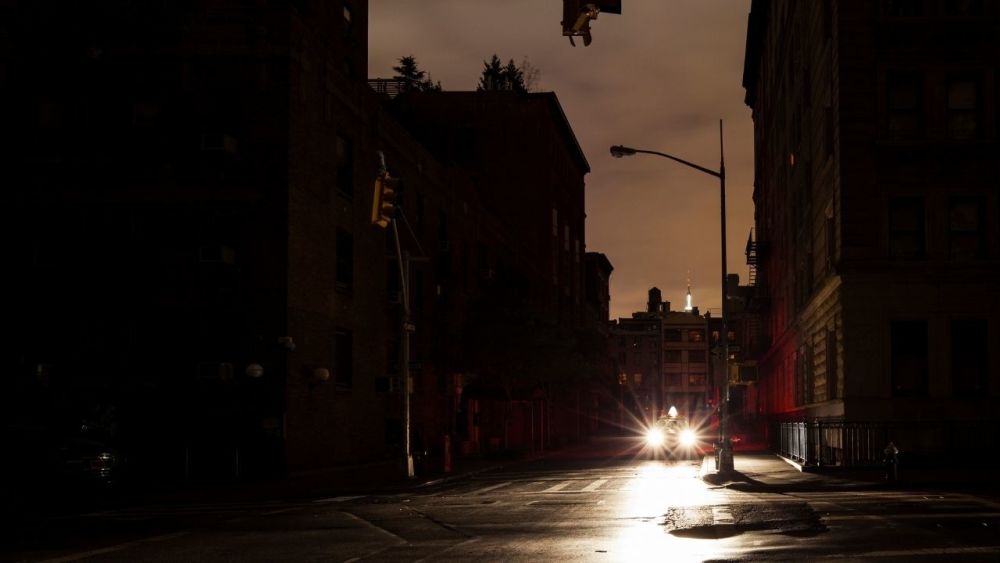
Here, too, I want to remind you how important it is to avoid unnecessary contacts and to do everything necessary to ensure your survival. Dangerous nighttime journeys undertaken because of extreme weather conditions certainly do not fall into that category.
Do not misunderstand me: Of course, you will not always be able to completely avoid the effects of weather, but you can minimize their impact on you by avoiding places with extreme climate fluctuations.
Also read
Why do people wear long, black clothing in the desert? - In the desert, the population wears long black garments, mostly made of thick fabrics. Why don't they wear a T-shirt and instead wear black clothes?
8. Contested areas
When talking about contested areas, it does not necessarily mean places where the local military is engaged in battles with hostile forces, but rather politically contested areas.
If you take a closer look at today's Europe, you will begin to understand why so many preppers and researchers are almost convinced that a civil war is imminent.
The political extremes are gaining more and more strength, the division is increasing, and the differences are growing faster than the similarities. Currently, everything is within the framework due to the prevailing order. However, if this order were to end, there would be renewed power struggles for political and moral supremacy.
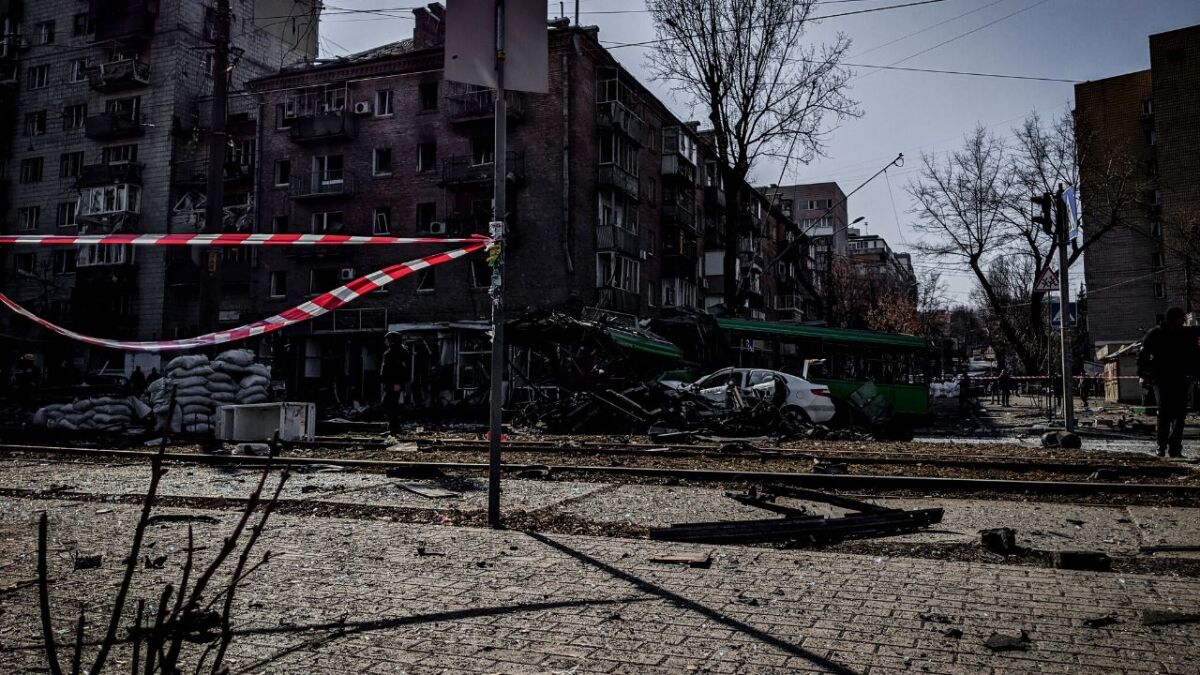
You should also avoid areas with pronounced organized crime such as clan or gang crime. It is to be expected that power struggles will break out as soon as the current system can no longer maintain order.
It is best to find a place where the differences between people are very small.
In the best case, you will find small towns or villages that are as culturally and politically homogeneous as possible. This minimizes the risk of future conflicts and power struggles.
Again, large cities are rather unfavorable because they often have a large number of people with different cultural backgrounds and political opinions, whose conflict potential in emergency situations is hard to deny. Organized crime also finds more fertile ground in large cities than in small villages.
Also read
These 10 types of people will have a hard time when SHTF - do you belong to them? - There are 10 types of people who will have a difficult time after or during a crisis. Do you know such people or perhaps belong to them?
Conclusion: Avoid places where there are large crowds
Basically, all the places mentioned in this article have one weakness: the people.
A large population is an underestimated risk in a disaster scenario and should be avoided accordingly!
Whether it is the people themselves who endanger you or the scarcity of resources due to their number, it is better to stay a little remote and away from important trade routes. Only enter and use them when you depend on them and there is no other option for you.
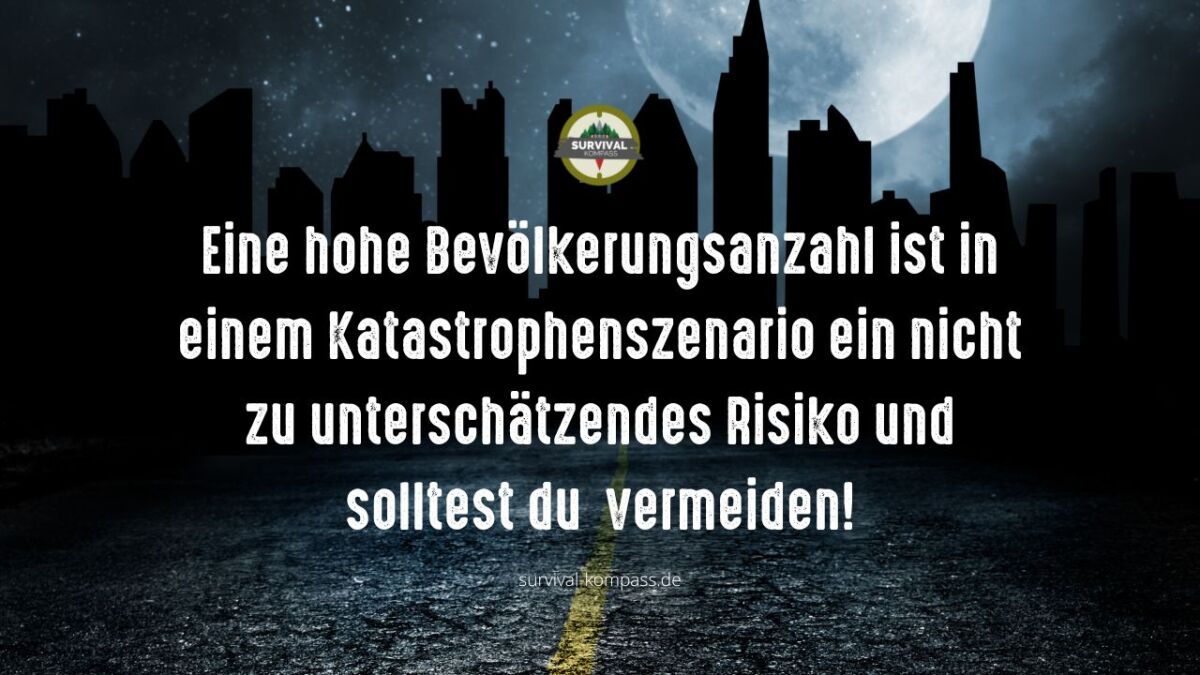
Furthermore, you should keep an eye on the climate of the place you choose. An extreme climate will make it even harder for you to survive in this already difficult situation. You want to make it as easy as possible for yourself, rightfully so, in every way.
It is best to check where you want to go in case of an emergency long before such a scenario occurs.
If you already have a safe place (also known as BOL, a Bug Out Location), even better.
Prepare yourself for all eventualities by browsing a little more in my blog and getting all the useful tips and tricks you can find!


Author of the guide
Martin Gebhardt
Hey, I'm Martin. On my blog, you will learn the basics and numerous details about living in the wild. I think survival, bushcraft and the good life in nature are the keys to happiness. Find me here on Instagram or on YouTube. You can find more about my mission on the About Me page.
Was this guide helpful?
13 people found this guide helpful.
5.00 out of 5 points (13 Ratings)
Comments (0)
This post may contain affiliate links. So if you click on the links and make a purchase, I will receive a small commission at no additional cost to you. Click here, to learn more about it.


